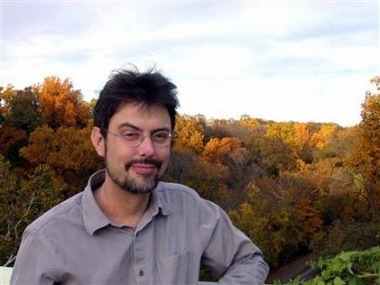
Campbell would present a slide lecture on Thursday, Friday and Saturday nights and then give the sermon on Sunday. I was part of the book discussion group that shared potluck with Campbell (he came back for seconds of my cornbread, leavened with bacon grease) and so I was able to witness some of his casual conversations.
The subject of Goethe’s “Faust” came up. (When we read it, three of the group members, my friends Dan, Wilhelm, and the beautiful Gail were reading it in the original German. Not me—I was basking in the relief of not being the smartest person in the room.) Campbell said quite kindly to Wilhelm that he had always considered what happened in Germany one of the tragedies of his own youth. He, Campbell, had studied in Germany under Heinrich Zimmer and other folklorists, the scholarly children and grandchildren of the Grimm Brothers. For Campbell’s generation of college students (he was born in 1904) “Germany” meant the culture that produced Beethoven, Mozart, Nietzsche and Goethe. “Japan” was a name that was meant cherry blossoms, haiku, Shinto, Zen Buddhism, the primeval bear cult of the Ainu.
Then two of the great cultures of the world went rabid, spilling out over their borders to murder the world and choke themselves in blood. Instead of the gospel of Amadeus and Hiroshige, they brought news of Dachau and the rape of Nanking.
I remember that conversation quite accurately. It could happen to any country, any culture, and I'm one of those who want to stop it before it happens here. “It can’t happen here”, Sinclair Lewis said, but he said it grinning like a skull. There are lines from Robert Lowell: “Do Rome, Carthage know what we deny? Death only throws fixed dice, and yet we raise the ante, and stake our lives at every toss.”
 This memoir of Joseph Campbell on Germany and Japan is by way of introduction to worries expressed by Anatol Lieven and his book "America Right or Wrong", just out in paperback. Lieven is a senior associate at Washington's Carnegie Endowment and is probably hates being the smartest person in the room.
This memoir of Joseph Campbell on Germany and Japan is by way of introduction to worries expressed by Anatol Lieven and his book "America Right or Wrong", just out in paperback. Lieven is a senior associate at Washington's Carnegie Endowment and is probably hates being the smartest person in the room."While America keeps a splendid and welcoming house, it also keeps a family of demons in the cellar," he writes. "Usually kept under certain restraints, these demons were released by 9/11," with the attacks on Washington and New York in September 2001, as the trigger that unleashed the nationalist, messianic "dark side" of America.
Any honest reader of America from Twain to Hammet to Chandler to MacDonald knows the truth of Lieven's words. If history and what was done to the Cherokees doesn't convince you, James Ellroy will set you straight in the first paragraph of "American Tabloid": "America was never innocent. We popped our cherry on the boat over and looked back with no regrets," and later in an interview, "Individuals are innocent. America itself as an entity was founded on a bedrock of racism, slavery, land-grabs and the slaughter of the indigenous people. That's it. To ascribe, as I say in the prologue of 'American Tabloid', our fall from grace to any single event or set of circumstances [in this case, the Kennedy assassination] is fatuous, and wholly wrong."
According to Reuters, "British journalist and think-tank fellow Anatol Lieven wrote his book "America Right or Wrong" as a wake-up call for the United States to curb its nationalism or face the consequences. For his trouble, Lieven received hate mail, was derided on Internet blogs and, in possibly the cruelest cut of all, was labeled "anti-American" in a review in the New York Times."
I am disappointed in our paper of record, so earnest about reading trends but so late getting to the table. The NYT sincerely wants to see the Big Picture, but it defends itself from thoughts it cannot bring itself to look (But what can you expect from a corporate culture that bores its readers with Chris Ware while overlooking the Hernandex Brothers?) The The New York Review of Books, at least, was able to read the book without frothing at the mouth, although The Times Literary Supplement has, I think, a clearer view of the book.
[OEE note: For myself, I felt vindicated by Lieven going back to the illiterate Andrew Jackson as the first avatar of our xenbophobia, our resentment of expertise, and our proud ignorance. I've a barroom theory that two-hearted America sighs for Thoreau, but settles for fucking Andrew Jackson. They say every great fortune begins with a crime, and for me Jackson, along with Jefferson, has been the dark murderous ancestor at the base of our material wealth. Jackson is the man who said, when told by the Supreme Court that he could not remove the Cherokees, said "Justice Marshall has made his decision, now let him enforce it." The son of a bitch is turning on a spit in Hell for every frozen child, even as he poses on our twenty dollar bill. Forget about the sports teams that insist on calling themselves "Redskins". Get Jackson off the 20 dollar bill.]
 "The best lack all conviction, while the worst are filled with passionate intensity." Buy that goofy Irishman a Guinness, and keep your socks and toothbrush packed under your bed. That's what Hannah Arendt did for the rest of her life, even after she landed safe in the USA from fascist Germany. You tell me: our country's current leaders cannot bear criticism or even scrutiny. They question the patriotism of even the staunchest veterans. Anyone who disagrees with them is a traitor. And the mob, its back turned even as its sons are being fed into the grinder, is busy watching the cabaret. A bientot. Auf wiedersehen. Until tomorrow...
"The best lack all conviction, while the worst are filled with passionate intensity." Buy that goofy Irishman a Guinness, and keep your socks and toothbrush packed under your bed. That's what Hannah Arendt did for the rest of her life, even after she landed safe in the USA from fascist Germany. You tell me: our country's current leaders cannot bear criticism or even scrutiny. They question the patriotism of even the staunchest veterans. Anyone who disagrees with them is a traitor. And the mob, its back turned even as its sons are being fed into the grinder, is busy watching the cabaret. A bientot. Auf wiedersehen. Until tomorrow...
 (And some days it takes more Stones than others...) Where Mythical Bestiary meets Contemporary Culture and Chews On Its Leg Until Covered with Slobber.
(And some days it takes more Stones than others...) Where Mythical Bestiary meets Contemporary Culture and Chews On Its Leg Until Covered with Slobber.
No comments:
Post a Comment